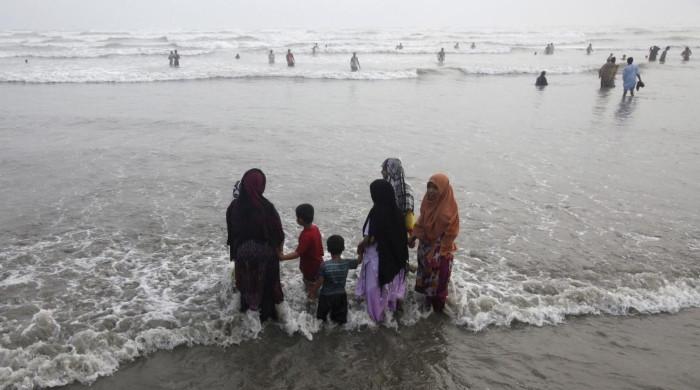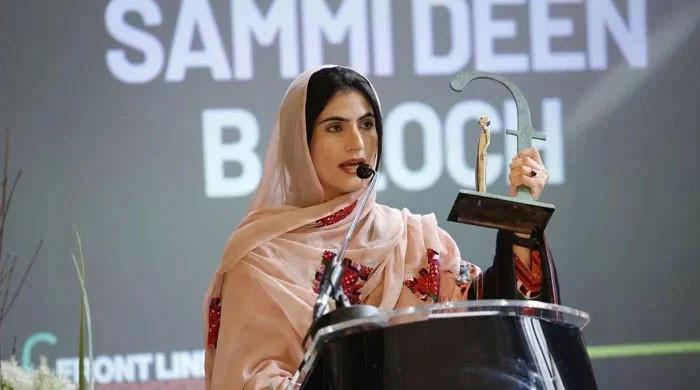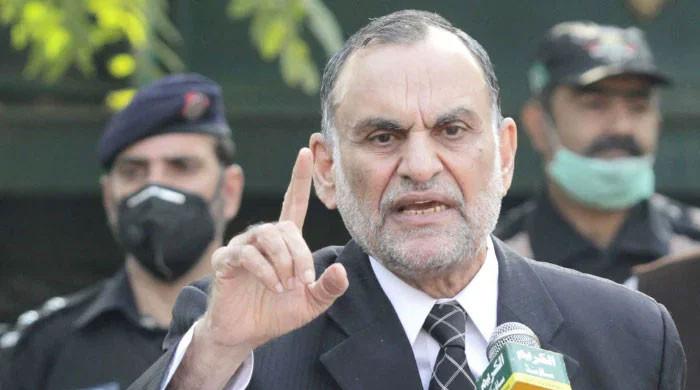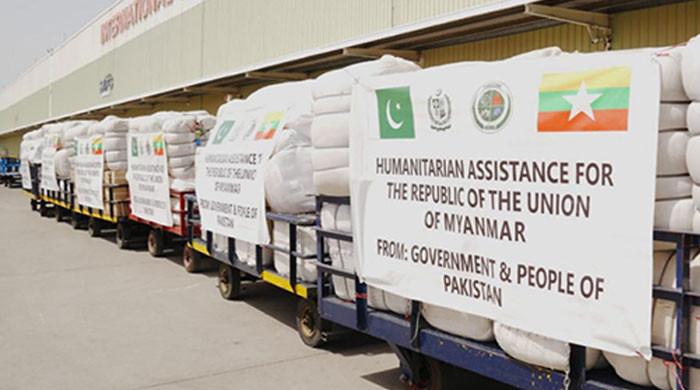Did Shehbaz Sharif's govt outperform PTI regime? Here's what analysts say
Last few months of PM Shehbaz Sharif's govt have been nothing short of challenging. But what do analysts have to say?
August 09, 2023
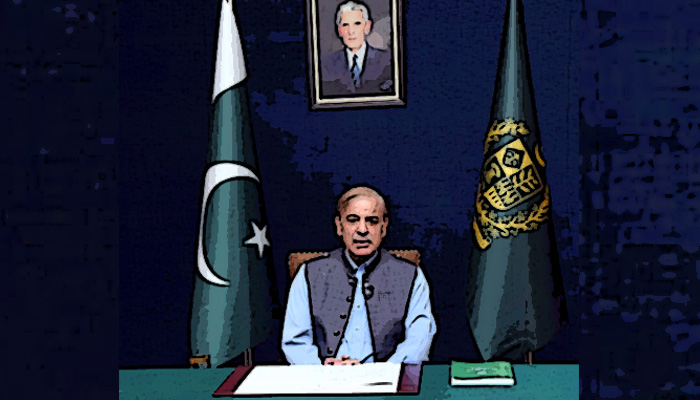
The one-and-a-half year tenure of the Pakistan Democratic Movement (PDM)-led regime comes to an end today, 16 months after taking the helms of the country's ship that — according to some — Pakistan Tehreek-e-Insaf's (PTI) had already run aground deep inside crises.
While the government was to exit on August 12, Prime Minister Shehbaz Sharif — whose party, Pakistan Muslim League-Nawaz (PML-N), is eying power yet again in the future — has chosen to depart with his gigantic cabinet a couple of days earlier.
The last few months of the government's time, which fell into Shehbaz's lap after PTI Chairman Imran Khan was ousted following a no-confidence motion, have been nothing short of challenging.
The centre suffered immense political turbulence, while Pakistan's economy remained in the doldrums, despite a successful, but delayed agreement with the International Monetary Fund (IMF).
Amidst this not-so-smooth sailing of the PDM-led coalition in Islamabad, the country witnessed unprecedented violence on the streets, particularly after a failed assassination attempt on Khan as well as his arrest. On the other hand, the PTI chief's incessant street shows kept the government on its toes, leaving it with no option but to resort to political vengeance weaponising laws and state institutions against their political rivals.
From April 2022 to August 2023, the country has remained a hotspot for national and international interest given its turbulent political and economic landscape.
Here's what analysts said about the Shehbaz-led administration's 16-month-long episode.
'Problems multiplied by 10'
— Hamid Mir
On the one hand, there is a duration of 3.5 years and on the other, there is a tenure of 1.5 years. You can't compare the two. But if you take a look overall, it seems that several economic troubles in Pakistan began when PTI was in power.
An agreement was reached with the IMF, but the conditions were not met, and several clauses were also violated, resulting in an economic crisis in Pakistan. This was the same economic turmoil that the Shehbaz-led government inherited.
So during his term, Shehbaz kept dealing with this economic crisis and claims that he sacrificed his politics to save the state. We can say that Shehbaz's government saved Pakistan from default — and the incumbent rulers also claim that this is a big achievement for them.
But the burden of inflation that has been passed on to the masses and the violation of human rights in the 1.5 years, are too much when compared to PTI's 3.5 years.
Overall, I would say politicians were put in jail during both their tenures, human rights were violated, and gags were imposed on the media.
The problems remained the same. But Shehbaz's 1.5-year tenure exacerbated these problems. You could say that the problems that emerged during PTI's tenure, the Shehbaz-led government multiplied them by 10 and made the situation worse.
Ups and downs
— Asma Shirazi
There were several ups and downs; we witnessed chaos, turmoil, fears of default, long marches, and whatnot.
These were troublous 16 months. But this tenure also witnessed back-breaking inflation. The coalition partners, which blamed PTI, failed to curb inflation.
Both the governments — the PTI and PDM — did not deliver on this front. This was a problem that was directly linked to the masses. If the PDM government was not responsible, it also could not control it.
Then, there came the IMF deal, political matters, and legislation in the last days of their tenure. There are several issues that can be raised when it comes to the PDM government.
Overall, we at least saw direction and seriousness during PDM's tenure. There is betterment overall, but the situation needs to improve.
'From bad to worst'
— Mazhar Abbas
Governance has always been the weakest area of every government whether at the center or at the provincial level and PDM's performance in the last 16 months is not different rather it has gone from bad to worst.
One of the main reasons among a few others has always been the lack of will on the part of the civilian governments to not delegate powers at the grassroots level i.e. through strong local bodies, which is the third tier of democracy.
The legislatures never want strong city governments and as a result the power rests on highly politicised, polarised and corrupt bureaucracy. PDM in the last 16 months has miserably failed in this department.
'Leaving behind a fractured nation'
— Benazir Shah
One of the biggest achievements of the coalition government was its proactive foreign policy. Under the PDM government, Pakistan attempted to mend diplomatic ties damaged during the PTI tenure.
This government's handling of the devastation caused by the floods last year and its fight for climate justice, for all developing countries, in Geneva can also be seen as a high point.
While some of its legislative wins include extending maternity leaves and pushing for daycare facilities for working women. Amendments to the election act, barring section 230, and to the law governing the state depository were also welcome moves.
But history will remember the PDM government for what it willfully gave up to stay in power. How it surrendered an unprecedented amount of space to the military establishment, by enacting laws which will be used against politicians, journalists and human rights activists in the years to come. Moreover, its legacy has been tainted by how it justified the trials of political opponents and civilians in military courts.
In his inaugural speech, Prime Minister Shehbaz Sharif promised to mend the country by reducing political polarisation. But what he leaves behind is a fractured nation, with shrinking space for democratic and progressive voices.
'Uncertain economy'
— Shahzeb Khanzada
The PDM kept the economy in an uncertain position. Pakistan paid the price of the uncertainty — the rupee fell against the dollar, markets remained jittery, and inflation witnessed a record rise.
On the economic front, the PDM did not perform well.
The second important issue was upholding democracy. PPP and PML-N repeatedly talked about it [before coming into power]. We saw a failure on that front. The institutions' intervention increased. In the end, the government passed laws in haste that would hurt democracy.
They are also leaving democracy in uncertainty as they have decided to hold elections based on the new census.
'Millions in new pledges of aid'
— Michael Kugulmen
The PDM’s handling of the economy left something to be desired, but it’s hard to find many major faults on the foreign policy front. The government managed tensions with India, ensured continued good ties with key allies Saudi Arabia and China, strengthened its ties with the US, and balanced its relations with Russia and Ukraine. It also did a lot of successful climate aid advocacy abroad after last year’s floods, resulting in millions in new pledges of aid.







